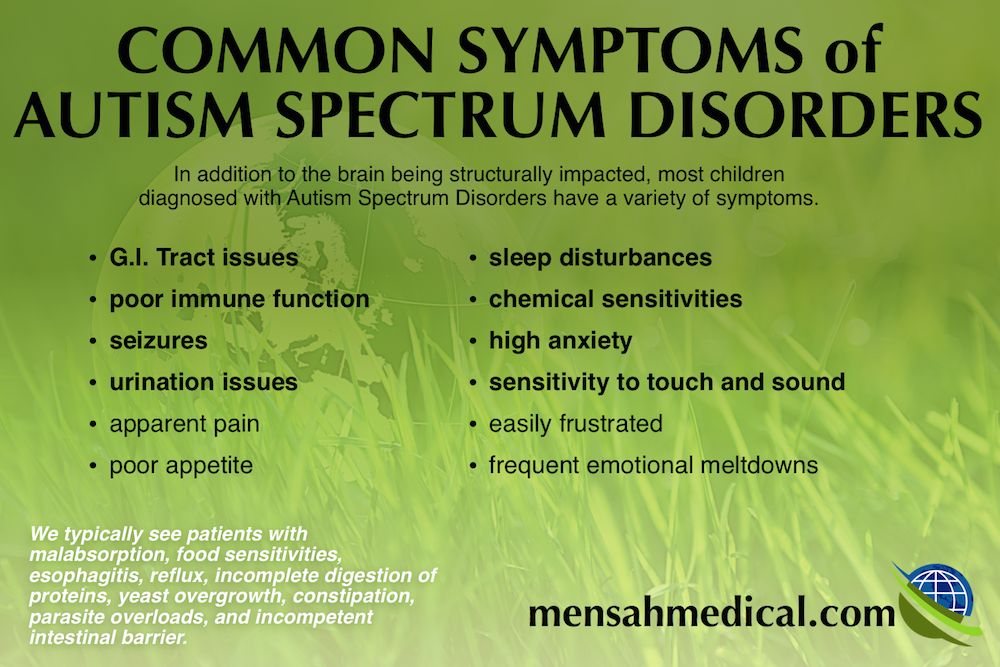Autism Spectrum Disorders: During a baby’s first few years, tracking developmental milestones are so very important. At well-baby visits, doctors look for indications of growth and development to make their determinations on how a baby or toddler is progressing. If the doctor detects a significant developmental delay or a baby is at risk to being delayed, parents may first learn of the possibility that their toddler has one of various Autism Spectrum Disorders. Autism Spectrum Disorders were renamed in the fifth edition of the American Psychiatric Association’s Diagnostic and Statistical Manual to now include autistic disorder, Asperger’s syndrome, and childhood pervasive developmental disorder.
Autism Spectrum Disorders: Getting a Diagnosis
Each of these “disorders” has common diagnostic and physiologic features but differ by severity in communication, social interaction and repetitive movements or restricted interests. ASD is often diagnosed around the age of two or three, when verbal, visual and name recognition do not appear to be developing, or a significant regression in functioning is noted.
Common Symptoms in Autism Spectrum Disorders:
In addition to the brain being structurally impacted, most children diagnosed with Autism Spectrum Disorders have a variety of symptoms.
- gastrointestinal tract problems (malabsorption, food sensitivities, esophagitis, reflux, incomplete digestion of proteins, yeast overgrowth, constipation, parasite overloads, and an incompetent intestinal barrier).
- poor immune function.
- seizures.
- sleep disturbances.
- chemical sensitivities.
- poor appetite.
- sensitivity to touch and sound.
- urination issues.
- high anxiety.
- apparent pain.
- easily frustrated.
- frequent emotional meltdowns.
Mensah Medical believes gene expression may play an important part in autism and that abnormal methylation and oxidative overload are the cause of most cases of autism. The physicians at Mensah Mensah subscribe to the Walsh Model of Autism: autism appears to be a gene-programming disorder that develops in undermethylated persons who experience environmental insults that produce overwhelming oxidative stress. Dr. Walsh’s database of 250,000 chemical assays of blood and urine for children with ASD revealed that children with ASD exhibit distinctive biochemical imbalances including undermethylation, zinc deficiency, abnormal metal metabolism, copper overload, elevated toxic metals, and other significant deficiencies/overloads.
There is hope for parents and families, and early intervention is essential. Mensah Medical’s individualized Advanced Nutrient Therapy is aimed at normalizing the child’s body-brain chemistry, dealing with digestive issues and food and chemical sensitivities, and reducing brain inflammation. Our treatment approach is targeted to correct undermethylation and other biochemical imbalances and reduce oxidative stress. The treatment of toxic metals is done naturally and slowly through antioxidant and nutrient therapies. Mensah Medical encourages families to begin Applied Behavior Analysis (ABA) therapy by an ABA-trained therapist in conjunction with using Advanced Nutrient Therapy.
Watch: A Comprehensive Approach to Biochemical Interventions in Treating Children on the Autism Spectrum to learn more.
In the fifth edition of the Diagnostic and Statistical Manual of Mental Disorders (DSM-5), patients could be diagnosed with four separate disorders: autistic disorder, Asperger’s disorder, childhood disintegrative disorder, or the catch-all diagnosis of pervasive developmental disorder not otherwise specified. Under the DSM-5 criteria, individuals with ASD must show symptoms from early childhood, even if those symptoms are not recognized until later. This criteria change encourages earlier diagnosis of ASD but also allows people whose symptoms may not be fully recognized until social demands exceed their capacity to receive the diagnosis.

